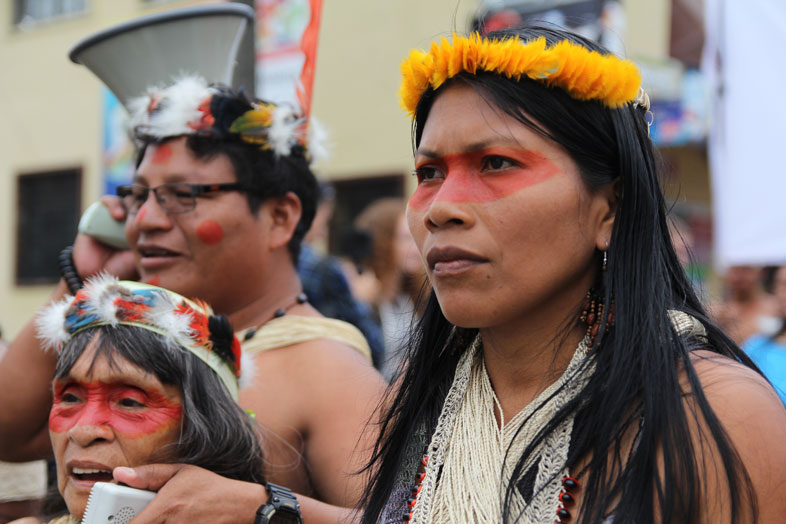
Ecuador court win for indigenous territorial rights
The Waorani indigenous people of the Ecuadoran Amazon won a legal victory hailed as historic, as the provincial court of Pastaza blocked the opening of their traditional territories to oil exploitation. The case was brought by 16 Waorani communities, who charged that their right to “free, prior and informed consent” was violated when the government divided much of the province into oil blocs. One, Bloc 22, overlaps almost entirely with Waorani territory. The ruling suspends auctions for Bloc 22 while the case is on appeal. (Photo: Mongabay)


